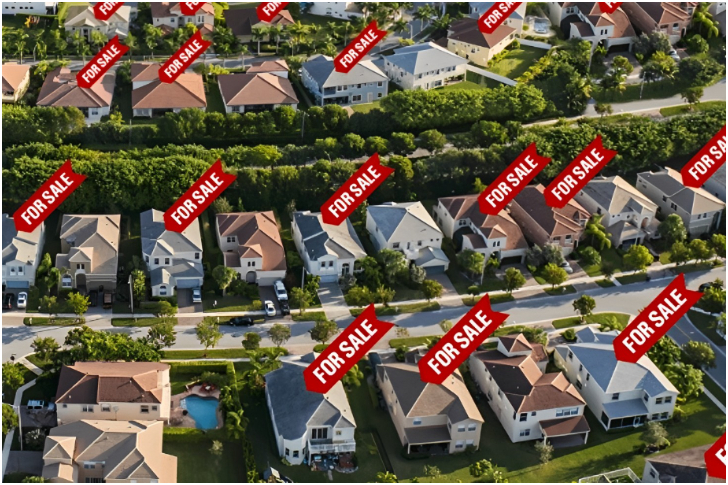Understanding House Valuation: A Comprehensive Guide for the American Homebuyer
House valuation is a crucial aspect of real estate that directly impacts buying, selling, refinancing, and investing decisions.

For Americans navigating the property market, understanding how homes are valued can demystify pricing and help make informed decisions. This article delves into the factors influencing house valuation, methods used to assess property value, and practical tips for homeowners and buyers.
Factors Influencing House Valuation
Several elements contribute to the value of a home. Key factors include:
- Location: The geographic location of a property is paramount. Proximity to schools, employment opportunities, public transportation, and amenities like shopping centers and parks can significantly enhance property value. Additionally, neighborhood safety and the overall quality of the community play a vital role.
- Size and Layout: The square footage of a home, number of bedrooms and bathrooms, and the overall layout impact its value. Larger homes with more functional layouts typically command higher prices.
- Condition and Age: The age of the property and its current condition are critical. Well-maintained homes or recently renovated properties are often valued higher than older, poorly maintained ones.
- Market Conditions: The real estate market fluctuates based on supply and demand dynamics. In a seller’s market, where demand exceeds supply, house prices tend to rise. Conversely, in a buyer’s market, where supply exceeds demand, prices may fall.
- Comparable Properties: Also known as “comps,” these are similar properties in the same area that have recently sold. Appraisers and real estate agents use comps to gauge the market value of a home.
- Economic Indicators: Broader economic factors such as interest rates, employment rates, and inflation also influence house values. Lower interest rates can increase buyer affordability, thus driving up prices.
Methods of House Valuation
Several methods are employed to determine the value of a home. These include:
- Comparative Market Analysis (CMA): Real estate agents use CMA to estimate a home’s value based on the sale prices of similar properties in the area. It is a practical approach for getting a ballpark figure.
- Automated Valuation Models (AVMs): These are computer-generated estimations of a property’s value based on public records, recent sales data, and pricing trends. While convenient, AVMs can lack the accuracy of a professional appraisal.
- Professional Appraisal: A licensed appraiser conducts an in-depth evaluation, considering various factors like location, condition, and market trends. This method provides a highly accurate valuation and is often required by lenders during the mortgage process.
- Cost Approach: This method calculates the value based on the cost of rebuilding the property from scratch, factoring in depreciation. It is often used for unique properties that don’t have comparable sales data.
- Income Approach: Primarily used for rental properties, this method assesses the value based on the potential income the property can generate. It involves analyzing rental income, operating expenses, and market rent trends.
Practical Tips for Homeowners and Buyers
Understanding house valuation is essential for both homeowners and potential buyers. Here are some practical tips to consider:
For Homeowners
- Maintain Your Property: Regular maintenance and timely repairs can preserve and even enhance your home’s value. Consider periodic upgrades to keep your home modern and functional.
- Understand Market Trends: Keep an eye on local real estate trends. Knowing whether it’s a buyer’s or seller’s market can help you time your sale for maximum profit.
- Get a Professional Appraisal: If you’re planning to sell, invest in a professional appraisal. It provides a solid foundation for setting your asking price and can prevent potential disputes with buyers.
- Enhance Curb Appeal: First impressions matter. Investing in landscaping, exterior paint, and other improvements to your home’s exterior can boost its value.
For Buyers
- Do Your Homework: Research the area thoroughly. Look at recent sales, neighborhood amenities, and future development plans. This can give you a clear picture of the potential for appreciation.
- Work with Professionals: Hire a reputable real estate agent and get a professional appraisal. These experts can provide valuable insights and help you avoid overpaying.
- Consider Future Resale Value: Think long-term. Properties in desirable locations with good schools and amenities tend to appreciate more over time.
- Budget Wisely: Ensure your budget includes potential repairs and maintenance costs. A home inspection can uncover issues that may affect the property’s value and your overall investment.
Example Table: Comparative Market Analysis (CMA)
To illustrate how a Comparative Market Analysis might look, here’s an example table comparing three similar properties in a hypothetical neighborhood.
| Property | Square Footage | Bedrooms | Bathrooms | Sale Price | Price per Sq. Ft. |
|---|---|---|---|---|---|
| Property A | 2,000 | 3 | 2 | $400,000 | $200 |
| Property B | 2,200 | 4 | 3 | $450,000 | $204.55 |
| Property C | 1,800 | 3 | 2 | $380,000 | $211.11 |
| Average | 2,000 | – | – | $410,000 | $205.22 |
In this example, the average price per square foot is calculated to help estimate the value of another property in the area based on its size.
Conclusion
House valuation is a multifaceted process influenced by numerous factors. Whether you are selling, buying, or refinancing, understanding how these factors interplay can significantly impact your financial decisions. By leveraging professional appraisals, keeping abreast of market trends, and maintaining your property, you can navigate the real estate market with confidence and make informed choices that align with your financial goals.







Recent Comments